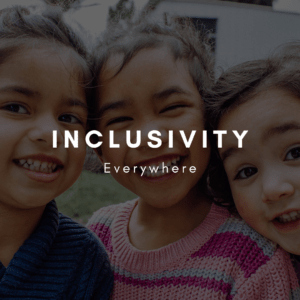A Guide for Families, Caregivers, and Supporters
For families, caregivers, and professionals working with children on the autism spectrum, one of the most challenging tasks is helping these children develop social skills. Social interaction is fundamental to making friends, participating in group activities, and forming meaningful relationships, both within the family and outside of it. Children with Autism Spectrum Disorder (ASD) often need explicit instruction while learning, practicing, and applying social skills. Without proper guidance and support, this process can feel overwhelming to the child and their family.
Applied Behavior Analysis (ABA) therapy is an effective and research-backed method that helps children with ASD build essential social skills. This blog post will explore how caregivers and family support systems can assist children in developing the skills needed to build relationships and maintain them over time, with a particular focus on ABA therapy.
Social Challenges for Children with ASD
Children with ASD often experience difficulties in various social interactions. These challenges may include understanding and interpreting non-verbal cues, initiating or maintaining conversations, and grasping social rules like turn-taking and sharing. As a result, social misunderstandings can occur, leading to isolation, frustration, and difficulties in forming friendships.
The struggles children face in social situations also extend to their family relationships. Though children with ASD bond deeply with their family members, they may have trouble expressing affection, understanding emotions, or engaging in activities that promote connection. These challenges highlight the importance of targeted efforts to build social skills in children with special needs.
Building Social Skills: A Foundation for Relationships
While all children need guidance in developing social skills, for those with ASD, social skill development requires structured teaching and repetitive practice. Early intervention is especially important, as it helps children form the foundational social skills they will use throughout their lives.
ABA therapy has been recognized as one of the most effective methods for helping children with ASD develop these critical skills. ABA focuses on breaking down complex social behaviors into smaller, teachable steps and reinforcing positive behaviors through structured techniques.
Key Social Skills for Children with ASD
When helping children with autism build social skills, it’s important to focus on the following key areas:
- Understanding and Expressing Emotions: Recognizing and expressing emotions is a vital part of communication and relationship building. Many children with ASD have difficulty identifying their own emotions and interpreting the emotions of others. ABA therapy can teach children to recognize basic emotions, such as happiness, sadness, anger, and fear, through the use of visual aids, such as emotion cards, and structured role-play activities.
- Taking Turns and Sharing: Cooperative play and participation in group activities often require children to share toys or take turns during a game. This can be difficult for children with ASD, who may not naturally understand the concept of sharing or waiting. Through ABA, therapists break these behaviors down into smaller components, practicing and reinforcing them until the child becomes more comfortable with these social rules.
- Starting and Maintaining Conversations: Engaging in conversation is another area where children with ASD often struggle. ABA therapy can help teach children how to appropriately initiate and continue conversations, focusing on key conversational skills such as asking questions, answering others, and staying on topic. Role-playing and modeling are often used to teach these skills, offering children the opportunity to practice in a supportive environment before applying them in real-world situations.
- Recognizing Social Cues: Social cues, such as understanding when someone is joking or when it’s your turn to speak, are often difficult for children with ASD to interpret. ABA therapy offers structured opportunities to teach these cues through repeated practice and reinforcement. For example, children may learn to recognize when a conversation partner is bored or when it’s time to change the subject.
- Building Flexibility in Social Interactions: Children with ASD may prefer routines and predictability, which can make social interactions—often unpredictable and dynamic—overwhelming. Teaching flexibility, such as accepting changes in plans or adjusting to different ways of interacting, is key to building relationships with others. ABA therapists work to create flexible social environments where children can practice coping with changes and unexpected outcomes in a controlled and supportive setting.
ABA Therapy and Social Skill Development
ABA therapy is widely recognized as a gold-standard approach for helping children with ASD develop a wide range of skills, including social ones. It uses data-driven methods and focuses on teaching new behaviors in a way that’s tailored to each child’s needs. Below are the key ways ABA therapy aids in social skill development:
- Individualized Approach: One of the core principles of ABA therapy is that each child’s program is tailored to their specific strengths and areas for improvement. For instance, a child who struggles with maintaining conversations may have a different focus than one who needs help with understanding emotions. This individualized approach ensures that therapy is effective for each child’s unique needs.
- Structured Learning Environment: ABA therapy is highly structured. Social behaviors are broken down into smaller, more manageable tasks, which are practiced one step at a time. For example, the behavior of participating in a group activity might be broken down into steps like joining the group, listening to instructions, and taking turns. By reinforcing each step, ABA therapists help children master more complex social interactions over time.
- Positive Reinforcement: Reinforcement is a fundamental concept in ABA therapy. Positive reinforcement, such as praise or rewards, is used to encourage and strengthen desired social behaviors. When a child successfully takes turns during a game or recognizes when it’s time to contribute to a conversation, they are rewarded for their effort. This reinforcement helps children understand the benefits of engaging in social interactions.
- Generalization of Skills: ABA therapy emphasizes not only learning social skills in a clinical setting but also applying these skills in real-world environments. This process is known as generalization. Therapists work closely with children to help them practice and apply their social skills in various settings, such as at home, in school, or during community activities. This ensures that the skills children learn in therapy transfer to everyday life.
Supporting Social Development at Home and in the Community
Supporting Social Development at Home and in the Community
While ABA therapy plays a significant role in helping children with ASD build social skills, families, caregivers, and support systems can also contribute to this growth. Here are some ways to support social skill development at home and in the community:
- Create Opportunities for Practice: Social skills require practice, and caregivers can provide many opportunities for children to engage with others. Playdates, family gatherings, or community activities are all great settings where children can practice the skills they are learning in therapy. Even routine family activities, such as mealtime or family game nights, can offer valuable social learning opportunities.
- Use Visual Supports: Children with ASD often benefit from visual supports to help them understand social expectations. Visual schedules, social stories, and emotion charts can be used to explain upcoming social situations or to help children identify and express their emotions during interactions. These tools can help prepare children for success in new social environments.
- Be Patient and Consistent: Developing social skills is a gradual process, and children with ASD may need extra time and practice to learn these behaviors. Patience and consistency are key. It’s important to celebrate even small victories and continue reinforcing positive social behaviors over time.
- Model Positive Social Interactions: Caregivers can model social behaviors by engaging in positive interactions in front of children. For example, showing kindness, using polite language, and taking turns in conversation can provide children with examples to emulate.
Building Lasting Relationships
For children with ASD, social skills are essential for building and maintaining meaningful relationships, both inside and outside the family. Whether it’s making friends at school, participating in group activities, or bonding with siblings and parents, social interactions play a crucial role in a child’s overall well-being. Through the use of ABA therapy, combined with the support of families and caregivers, children can learn the skills they need to form and nurture these relationships.
The social skills learned through ABA therapy don’t just benefit children in the moment—they lay the groundwork for lifelong social success. With support, patience, and consistent practice, children with ASD can develop the ability to communicate, connect, and build meaningful relationships with those around them.
Conclusion
Helping children with ASD develop social skills is a collaborative effort that involves therapy, family involvement, and real-world practice. ABA therapy provides an evidence-based approach to teaching these skills, breaking down complex social behaviors and reinforcing them through structured learning. Families and caregivers play a crucial role in reinforcing these skills at home and in the community, providing the child with opportunities to practice and grow.
By focusing on key areas such as recognizing emotions, sharing, participating in conversations, and building flexibility in social interactions, children with ASD can learn the skills they need to form lasting, meaningful relationships. Early intervention, combined with the consistent support of caregivers and ABA therapists, will help children with ASD lead fulfilling, connected lives.
References
Koegel, R. L., Koegel, L. K., & Carter, C. M. (1999). Pivotal response intervention I: Overview of approach. Journal of the Association for Persons with Severe Handicaps, 24(3), 174-185.
Lovaas, O. I. (1987). Behavioral treatment and normal educational and intellectual functioning in young autistic children. Journal of Consulting and Clinical Psychology, 55(1), 3-9.
Smith, T. (2001). Discrete trial training in the treatment of autism. Focus on Autism and Other Developmental Disabilities, 16(2), 86-92.
Steege, M. W., Mace, F. C., Perry, L., & Longenecker, H. (2007). Applied behavior analysis: Beyond discrete trial teaching. Psychology in the Schools, 44(1), 91-99.





